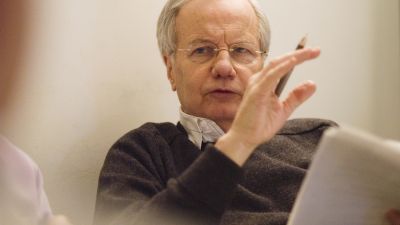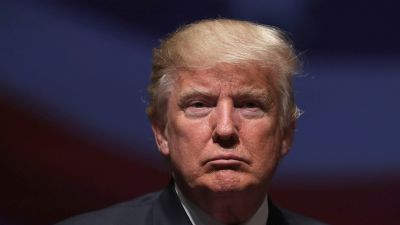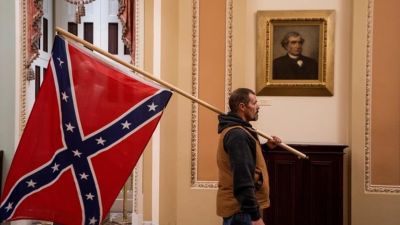
WASHINGTON, DC - NOVEMBER 03: Volunteers provide food and water for voters outside a polling station for the 2020 U.S. presidential election on November 3, 2020 in Washington, DC. (Photo by Sha Hanting/China News Service via Getty Images)
Programming Note
Joe Biden is going to be the president. There will be some shouting between now and Inauguration Day but that’s what’s going to happen.
First Response
I thought Wednesday was a sad milestone in our coronavirus efforts, but then Thursday rolled around and gave us 116,000 new cases. The numbers are just expanding, especially in the key area of hospitalizations, which is a less fudge-able indicator. The failure of Europe to get control of the virus suggests a trajectory in the pandemic on par with the Spanish flu, which raged in its second wave before burning itself out. And while the European strain appears to be a mutation that may be more contagious, if their administrative state cannot get a hold of the spread, ours has no chance.
That’s especially true given that roughly 60 million Americans left their homes on Tuesday, got in a line, went for the most part indoors, interacted with volunteers at close range, and cast their ballots in the general election.
We don’t have great data on the impact of elections on the spread of the virus. In Wisconsin, where there was a lot of in-person voting in April, a few dozen cases were linked to polling places, but Wisconsin wasn’t haven’t a particularly virulent outbreak at that time. Now it’s completely out of control there, with 5,900 cases a day two days running. Several states are at their record highs in case counts right now; in North Dakota it’s over 2,000 cases per million, the highest level recorded anywhere in the country. And people went to the polls, maybe not in the same numbers because of mail-in voting but at a healthy enough clip.
Indeed, virtually the entire country is seeing elevated spread right now, and virtually the entire country voted in person on Tuesday. We’ll have to wait a couple weeks to see the impacts of that in the numbers, but I cannot imagine that there’s no impact.
We also know from the counting that a substantial part of that in-person vote on Election Day were Trump supporters, and that doesn’t correlate entirely well with social distancing or mask wearing. I have heard from a few people about wildly varying standards at polling places in terms of sanitization and masks and general compliance with public health guidelines. Again, this is not comparable to the primaries, which were by and large held when there wasn’t as much to be concerned about in those particular states and regions.
The exponential growth we’re seeing now, in fact, could be an artifact of early voting, which featured long lines in many parts of the country, with people waiting hours to vote, sometimes stuck indoors on that wait. It will be a while to disaggregate that, but to the extent Americans were doing something novel in the last month, it’s been voting. And the cases have skyrocketed over that period.
This is not a call, of course, for shaming people who got in line to vote. There are painful questions about managing safety and exercising civil rights. People who knowingly had COVID took on significant hardships in order to vote, and some were turned away, which is wrong. But it just seems like an empirical reality that some portion of the 60 million people who voted in person on Tuesday, and the millions more who voted previously, were infected, perhaps asymptomatic but infected. And they likely infected others.
That’s something we’ll have to deal with, but the political system has elections and agendas and all the rest to discuss, and the media has counting to go over, and so this uncontrolled outbreak that has upended our lives for eight months has faded into the background. Nobody expects the Trump administration or even state officials to get too invasive about lockdowns or even public health guidance. We’re just going to let this burn, without anyone to raise their voice and demand caution.
Wake Up Mr. Fed
There’s a trend piece in the business press right now with a bunch of quotes from exultant investors glad that the election results signal no changes whatsoever to their tax burden or financial extraction. But one set of market participants are despondent: municipal bond traders. Munis have been falling since the election, for two separate reasons. One, divided government likely means little, if any, state and local government relief; two, the likely lack of changes to the tax system means that tax-free muni bonds will not look as attractive as an alternative for investors. A failed ballot measure that would have brought a graduated income tax increase in Illinois led to fears that the state’s debt rating would fall as well.
The drop in munis is a signal that the states are going to experience tremendous pain for a while. Even in the relatively good jobs report today, state and local governments shed 130,000 jobs. Without relief, these losses are going to rise, it’s just undeniable. The Fed has the power to save state and local governments, not just through the Municipal Liquidity Facility, but by using other authorities to make short-term, endlessly-rolled-over cheap loans. We know that this is going to be the main obstacle to full recovery. If Congress won’t act the Fed has to step in.
Days Without a Bailout Oversight Chair
224.
Today I Learned
- Here are some Election Night clips from me on Twitch with Hasan Piker. (YouTube)
- The jobs report for October was fairly strong, but beware the aggregates; inequality masks the significant pain out there. (CNBC)
- Denmark is completely sealing off North Jutland to try and stop the coronavirus mutation from spreading. (The Local)
- Meanwhile, mink are dying in Wisconsin; it’s thought that the mutated COVID strain in mink in Denmark jumped to humans. (Wisconsin Public Radio)
- Nearly $13 billion in COVID-related losses for sports leagues. (Bloomberg)
- ESPN is cutting a bunch of jobs, which you can see as a knock-on effect of the above. (Los Angeles Times)




